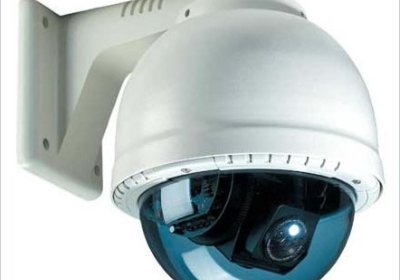“The worst genocide of this century” was how Paul Newman, professor of human rights at the University of Bangalore, described what has happened to the Tamil people in Sri Lanka.
Newman was delivering the Eliezer memorial lecture, in memory of Professor CJ Eliezer, the founder of the Eelam Tamil Association of Victoria, at Monash University on August 25.
Newman was speaking on democracy in south Asia. He began by outlining some common features of the south Asian countries including India, Pakistan, Bangladesh, Nepal, Bhutan and Sri Lanka, before discussing Sri Lanka in more detail.
Chris Slee
Locked-out Yallourn power station workers were joined by hundreds of people at a rally outside the offices of their employer, Energy Australia, in Melbourne on August 16.
The company, a subsidiary of the Hong Kong-based China Light and Power, locked out all 75 shift operators, members of the Construction Forestry Mining Energy Union (CFMEU), on June 21.
The workers had been limiting power output as part of a campaign of protected industrial action in pursuit of a new enterprise agreement.
The Tamil National Alliance (TNA), the main party representing Tamils in Sri Lanka’s parliament, has selected 36 candidates to contest the Northern Provincial Council elections, to be held on September 21.
Sri Lanka’s northern province, which is mainly inhabited by Tamils, has been under military rule since the defeat of the Liberation Tigers of Tamil Eelam (LTTE) in 2009. The LTTE fought for nearly three decades for an independent Tamil state in the north and east of the island.
About sixty people attended a meeting on “America’s Pacific Push” on July 25.
Bruce Gagnon, coordinator of the Global Network Against Weapons and Nuclear Power in Space, spoke about the growing US military presence in the Pacific.
Examples included the expansion of a missile test range in Hawaii, the building of a naval base on South Korea’s Jeju Island despite strong resistance from local people, and the plan to station 2500 US troops in Darwin.
Gagnon said that US bases in Australia play a crucial role in US military strategy.
A former Tehran University student, Behzad Bargheri, spoke to 50 people at a public meeting on Iran on July 20.
Bargheri told the meeting in Melbourne that during the 1980s the Islamic Republic regime took “harsh and bloody measures” to suppress the left. Many thousands of leftists were arrested, tortured and murdered.
The universities were closed for several years. When they reopened they had been purged of leftist students.
More than 200 pensioners rallied on the steps of Victoria’s parliament house on July 10.
The rally was called by the Fair Go for Pensioners Coalition, which has a list of demands on the state and federal governments.
Their demands on the federal government include a pension rise from 27.7% of average weekly earnings to 35%; improved healthcare measures, including medical, dental, optical, hearing, pharmaceutical and culturally appropriate services; and more funding for aged care services.
The Victorian government's Fire Services Levy was introduced on July 1. It replaces the original levy, which was deducted from insurance premiums, and now collects funds from all property holders along with council rates.
The original levy was introduced in 2009 to pay for implementing the recommendations of the 2009 Bushfires Royal Commission.
A sign reading “Moreland City Council welcomes refugees and asylum seekers” has been erected outside the council's office in the Melbourne suburb of Coburg, on July 4.
The motion to install the sign was moved by Socialist Alliance councillor Sue Bolton, and passed council vote on May 8.
The council also committed support to the World Refugee Day rally in Melbourne, which called for an end to mandatory detention and deportations, and the closure of Nauru and Manus Island detention camps.
Protests by local people forced the abandonment of a plan to train Sri Lankan military officers at India’s Defence Services Staff College in the Nilgiris district of Tamil Nadu, a state in southern India.
The Times of India said at least two towns in Nilgiris were shut down by a strike on June 24 in protest at the plan.
The Indian government then offered to train the Sri Lankan officers elsewhere in India, but the Sri Lankan government turned the offer down.
Moreland City Council has voted to accept an offer from the Victorian government to fund the installation of CCTV cameras on Sydney Road in Brunswick.
The offer was made following the rape and murder of Brunswick resident Jill Meagher in a side street near Sydney Road last year.
Three councillors voted against the decision: Socialist Alliance councillor Sue Bolton, and Greens councillors Samantha Ratnam and Lenka Thomson.
More than 800 people rallied in Thellippazhai on April 29, a town in the north of the island of Sri Lanka. They marched towards the entrance of a nearby military zone.
The Tamilnet website said the rally organisers had been warned by police that a march would not be permitted, but rally participants spontaneously decided to march regardless. They were blocked from reaching the military zone by the army and police.
They were protesting against the confiscation of their land by the Sri Lankan army.
About 50 people attended a community safety forum organised by Moreland City Council on April 24.
The forum was organised as part of the debate about how to make the streets safer following the murder of Jill Meagher last year.
The state government’s proposal to fund installation of CCTV cameras on Moreland streets was controversial. It was strongly advocated by Moreland Mayor Oscar Yildiz, and supported by federal Labor MP Kelvin Thomson and state Labor MP Jane Garrett.
- Previous page
- Page 27
- Next page





